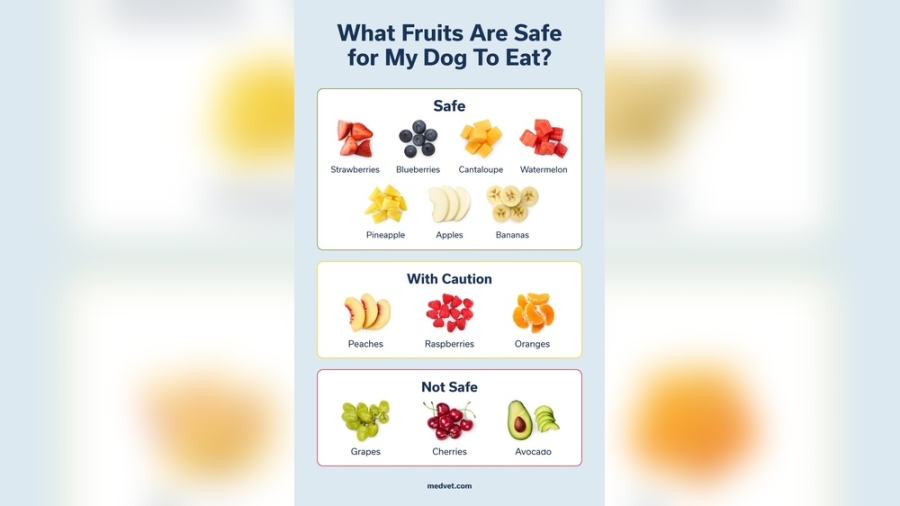If you’re a proud poodle parent, you probably love sharing tasty treats with your furry friend. But when it comes to fruits like cantaloupe, you might wonder, “Can poodles eat cantaloupe safely?” It’s natural to want to give your dog something fresh and healthy, especially on a hot day.
Before you toss a juicy slice their way, it’s important to know how cantaloupe affects your poodle’s health, how much is safe, and what to watch out for. Keep reading to discover everything you need to know about feeding cantaloupe to your poodle so you can treat them right without any worries.

Cantaloupe And Poodles
Cantaloupe is a juicy fruit that many dogs enjoy. Poodles can safely eat cantaloupe in small amounts. This fruit offers vitamins and hydration, which can benefit your poodle.
Always remove seeds and rind before giving cantaloupe to your dog. These parts can cause choking or digestive problems. Stick to bite-sized pieces to keep your poodle safe.
Is Cantaloupe Safe For Poodles?
Cantaloupe is not toxic to poodles. It contains vitamins A and C, which support the immune system. The fruit also has fiber that helps with digestion. Use cantaloupe as an occasional treat, not a meal replacement.
Health Benefits Of Cantaloupe For Poodles
Cantaloupe can improve your poodle’s health in several ways. The fruit helps keep dogs hydrated due to its high water content. It also contains antioxidants that fight free radicals. These benefits promote overall well-being in poodles.
How Much Cantaloupe Should Poodles Eat?
Offer only small amounts of cantaloupe at a time. Too much sugar in the fruit can upset your poodle’s stomach. A few small cubes a couple of times a week is enough. Always watch for any signs of allergy or discomfort.
Nutritional Benefits
Cantaloupe is a sweet, juicy fruit that can be a healthy treat for poodles. It contains important nutrients that support a dog’s overall health. Feeding cantaloupe in small amounts can add variety and nutrition to your poodle’s diet.
This fruit is low in calories and fat, making it a good snack option. It also has plenty of water, which helps keep dogs hydrated, especially on hot days.
Rich In Vitamins
Cantaloupe is packed with vitamins like A and C. Vitamin A helps keep your poodle’s eyes healthy and supports good skin. Vitamin C acts as an antioxidant and boosts the immune system. Both vitamins help your dog stay strong and active.
High Water Content
Cantaloupe contains about 90% water. This helps keep your poodle hydrated and supports kidney function. Hydration is important for digestion and overall health. It is a tasty way to add fluids to your dog’s diet.
Good Source Of Fiber
Fiber in cantaloupe aids digestion and helps maintain a healthy weight. It can prevent constipation and promote regular bowel movements. A small amount of fiber supports your poodle’s gut health without causing upset.
Contains Essential Minerals
Cantaloupe offers minerals like potassium and magnesium. Potassium helps regulate muscle function and heart health. Magnesium supports strong bones and energy production. These minerals contribute to your poodle’s overall well-being.
Sugar Content Concerns
Poodles can enjoy cantaloupe, but its high sugar content requires careful portion control. Too much sugar may upset their stomach or affect their health. Always offer small amounts to keep treats safe and healthy.
Sugar Levels In Cantaloupe
Cantaloupe has natural sugars that give it a sweet taste. These sugars can affect a poodle’s health if given in large amounts. Dogs do not process sugar like humans do. Too much sugar can lead to weight gain and other health problems.
Even though cantaloupe is healthy in small amounts, it is important to watch the sugar intake. Excess sugar can cause blood sugar spikes. This is especially risky for poodles prone to diabetes.
Risks Of High Sugar For Poodles
Poodles eating too much sugar may face energy crashes or digestive issues. High sugar intake can also increase the chance of obesity. Obesity can lead to joint pain and heart problems in dogs.
Keeping sugar levels low helps maintain a poodle’s overall health. It supports steady energy and a strong immune system. Owners should offer cantaloupe only as an occasional treat, not a regular snack.
How To Feed Cantaloupe Safely
Remove seeds and rind before giving cantaloupe to your poodle. Cut the fruit into small, bite-sized pieces. Start with a small amount to see how your dog reacts.
Limit cantaloupe servings to avoid too much sugar in one day. Fresh water should always be available to help digestion. Monitor your poodle for any signs of discomfort after eating cantaloupe.
Safe Serving Sizes
Small pieces of cantaloupe are safe for poodles as an occasional treat. Avoid feeding large amounts due to high sugar content. Always remove seeds and rind to prevent choking or digestion issues.
Understanding Safe Serving Sizes For Poodles
Giving cantaloupe to your poodle needs care. Too much can cause stomach upset. Small amounts are best to keep your dog healthy.
Start with a few small pieces. Watch your poodle’s reaction. If there is no sign of discomfort, you can give a little more next time.
Recommended Portion For Small And Medium Poodles
For small and medium poodles, limit cantaloupe to about one to two tablespoons. This is roughly two to four small cubes. Serving more can increase sugar intake, which is not good for dogs.
Serving Tips For Large Poodles
Large poodles can have a bit more cantaloupe. About three to four tablespoons or six to eight small cubes is safe. Always remove seeds and rind before serving. These parts can cause choking or digestive issues.
Frequency Of Feeding Cantaloupe To Poodles
Offer cantaloupe as an occasional treat, not a regular meal. Feeding cantaloupe two to three times a week is enough. Regular treats should not replace a balanced diet.
Risks Of Seeds And Rind
Feeding cantaloupe to your poodle involves caution around seeds and rind. These parts of the fruit can cause health problems if ingested. Understanding the risks helps keep your dog safe.
Risks Of Cantaloupe Seeds For Poodles
Cantaloupe seeds may cause choking or blockages in your dog’s digestive system. Small seeds can get stuck in the throat or intestines. This can lead to serious medical issues. Avoid giving your poodle any seeds from cantaloupe.
Dangers Of Cantaloupe Rind For Dogs
The rind is tough and hard to digest. Dogs may struggle to chew it properly. Eating rind pieces can cause stomach pain and upset. Large rind pieces might block the digestive tract, requiring veterinary help.
Signs Of Seed Or Rind Ingestion Problems
Watch for vomiting, diarrhea, or loss of appetite after your dog eats cantaloupe. Signs of abdominal pain include whining or reluctance to move. If your poodle shows these symptoms, contact your vet immediately.
Alternatives To Cantaloupe
Offering your poodle a variety of fruits keeps their diet exciting and nutritious. Cantaloupe is safe but contains natural sugars, so other options might suit your dog’s needs better. Exploring alternatives can help balance taste and health.
Apples
Apples provide fiber and vitamins for your poodle. Remove seeds and core before feeding. They are low in calories and help clean teeth naturally.
Blueberries
Blueberries are small and easy to eat. They contain antioxidants that support your dog’s immune system. Serve fresh or frozen as a tasty treat.
Carrots
Crunchy carrots improve dental health and offer vitamins. Most dogs enjoy their natural sweetness. Cut into small pieces for safe chewing.
Watermelon
Watermelon is hydrating and low in calories. Remove seeds and rind to avoid digestive issues. It makes a refreshing summer snack for your poodle.
Pumpkin
Pumpkin supports digestion and is rich in fiber. Serve cooked or canned without spices. It helps regulate your dog’s bowel movements effectively.
Feeding Tips For Diabetic Dogs
Diabetic dogs need special care in their diet. Managing blood sugar levels is key to their health. Choosing the right foods helps keep their sugar stable. Treats should be given carefully and in small amounts.
Fruits like cantaloupe can be tricky because of natural sugars. Knowing how to feed diabetic dogs safely makes a big difference. It helps avoid sudden spikes in blood glucose. Always watch your dog’s reaction to new foods.
Portion Control Is Crucial
Limit cantaloupe servings to small pieces only. Large amounts can raise blood sugar quickly. Keep treats under 10% of the daily diet. Frequent, small meals help regulate glucose better than one big meal.
Monitor Blood Sugar Regularly
Test your dog’s blood sugar before and after feeding cantaloupe. This shows how the fruit affects their levels. Adjust portions based on test results. Talk to your vet about ideal glucose targets.
Choose Low-glycemic Foods
Pick foods that release sugar slowly. Vegetables and lean meats are good options. Use cantaloupe as an occasional treat, not a daily snack. Combine it with protein to reduce sugar impact.
Avoid Seeds And Rind
Remove seeds and rind from cantaloupe before feeding. Seeds can cause choking or digestive issues. The rind is hard to digest and may upset your dog’s stomach. Only soft, ripe flesh is safe to eat.
Consult Your Veterinarian
Always check with your vet before introducing new foods. They can guide you on safe amounts and frequency. Your vet may suggest specific diets for diabetes management. Follow their advice to keep your dog healthy.

Signs Of Allergic Reactions
Watch for signs like itching, swelling, or vomiting after your poodle eats cantaloupe. Difficulty breathing or hives also indicate an allergic reaction. Act quickly if you notice these symptoms to keep your dog safe.
Recognizing Skin Irritations
Watch for redness on your poodle’s skin after eating cantaloupe. It may itch or have small bumps. Scratching and licking often increase with irritation. These signs often show up quickly. Early detection helps prevent worsening symptoms.
Digestive Issues To Notice
Allergic reactions sometimes cause vomiting or diarrhea. Your poodle might refuse food or water. Stomach pain can make your dog restless. Digestive upset usually happens soon after eating new foods. Keep an eye on any sudden changes.
Breathing Difficulties In Dogs
Difficulty breathing is a serious allergy sign. Wheezing or coughing might occur after eating cantaloupe. Your dog may breathe faster or seem tired. Seek veterinary help immediately if breathing worsens. This symptom needs urgent attention.
Swelling And Facial Changes
Swelling around the face, eyes, or mouth can signal an allergy. Your poodle might have a puffy face or lips. This reaction may make eating or drinking hard. Swelling can develop quickly and should be treated fast. Avoid feeding more cantaloupe until checked.
Consulting Your Veterinarian
Consulting your veterinarian is essential before introducing cantaloupe to your poodle’s diet. Every dog has unique health needs. A vet can provide advice tailored to your dog’s condition and nutritional requirements.
Veterinarians can identify any allergies or sensitivities your poodle may have. This helps avoid potential health risks linked to new foods like cantaloupe. Their guidance ensures your dog’s safety and well-being.
Discussing portion size and frequency with your vet is important. Cantaloupe contains natural sugars that might affect dogs with diabetes or weight issues. Your vet can recommend safe amounts to avoid any harm.
Understanding Your Poodle’s Health History
Your vet knows your poodle’s medical background. They can spot conditions that might react badly to cantaloupe. Sharing complete health details helps vets make the best advice.
Addressing Allergies And Food Sensitivities
Some poodles may have allergies to certain fruits. Your vet can run tests or suggest observation steps after feeding cantaloupe. This prevents allergic reactions or digestive upset.
Getting Advice On Portion Control
Even healthy dogs need moderation with treats. Vets guide you on how much cantaloupe is safe based on your dog’s size and health. Proper portion control keeps your poodle fit.
Monitoring For Side Effects
Your vet can help you spot side effects from new foods. Early detection of issues like diarrhea or vomiting is crucial. They provide quick action steps to protect your dog.

Frequently Asked Questions
Is Cantaloupe Good For Poodles?
Yes, cantaloupe is safe and healthy for poodles in moderation. Remove seeds and rind before feeding. Avoid if diabetic.
How Much Cantaloupe Can A Dog Have?
Dogs can safely eat small cantaloupe pieces, about 1-2 bites for small dogs and up to half a cup for large dogs. Remove seeds and rind to prevent choking or digestive issues. Limit servings due to natural sugars, especially for diabetic dogs.
Always monitor your dog’s reaction.
What Is The Safest Fruit For Dogs?
The safest fruits for dogs include apples, blueberries, and cantaloupe. Always remove seeds and rinds, and feed in moderation.
What Melons Can Dogs Not Eat?
Dogs should not eat melon rinds from watermelon, cantaloupe, or honeydew. These tough outer parts cause digestive issues. Avoid seeds too, as they pose choking risks and may contain harmful substances. Always serve melon flesh in small, seedless pieces to keep your dog safe and healthy.
Conclusion
Poodles can enjoy cantaloupe as a tasty treat in small amounts. This fruit provides vitamins and hydration but contains natural sugars. Too much cantaloupe may cause stomach upset or weight gain. Always remove seeds and rind before giving it to your dog.
Watching your poodle’s reaction helps ensure they tolerate it well. For any concerns, ask your veterinarian for advice. Feeding cantaloupe safely adds variety to your poodle’s diet without risks. Keep portions moderate and enjoy the benefits of this fresh fruit.

